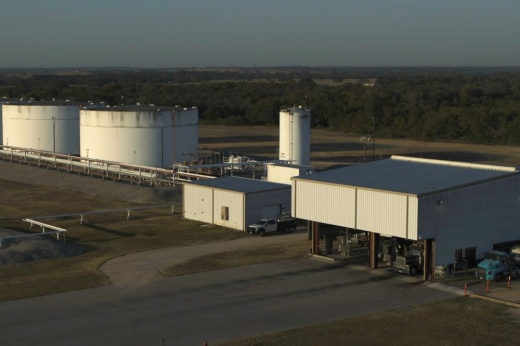The current situation
The Flint Hills Resources team is in the final preconstruction stage for the proposed pipeline that would run along SH 71 from the Jet-A Fuel terminal in Cedar Creek to ABIA in Austin.
Andy Saenz, public affairs regional manager, said the current truck-based fuel delivery system operates under a “just in time” approach, which causes delays for airport passengers and Bastrop drivers. Those delays can range from traffic congestion to bad weather, not having enough drivers, and more; however, the pipeline would eliminate or reduce all of those concerns, he said.
The big picture
The need for a more reliable fuel source comes alongside ABIA’s record-breaking growth over the past few years.
“ABIA’s expansion plans led us to start working on this about two years ago,” Saenz said. “Not to mention that most modern airports have dedicated pipelines with a constant supply of fuel, so it just makes sense.”
In addition to ABIA’s growing passenger list, Bastrop County’s population has seen a 21% increase between 2019-23—making it the 13th fastest-growing county in Texas, according to the latest numbers from the U.S. Census Bureau.
That increased population has also resulted in a heavier traffic flow along SH 71. Texas Department of Transportation officials have acknowledged that and are working to alleviate it with their four-pronged 71 East Corridor project; the first of which was completed last October.
“As Travis and Bastrop counties continue to grow, the completed project improves safety and mobility by allowing through-traffic on SH 71 to flow through the area without stopping,” TxDOT officials said in a release.
The plan
Fully funded by Flint Hills Resources, construction should take about six months and is expected to begin once permitting is completed in late 2025.
The 20-mile pipeline will be 10 inches in diameter and buried 4 feet underground, utilizing public rights of way.
“It’s not huge like a water pipeline,” Saenz said. ”And it will never be seen, heard or smelled.”
It will also be monitored 24/7, with the ability to immediately shut it down at the first sign of an anomaly, he said.
“Today’s pipelines are reliable—they’re tested and retested,” Saenz said, noting that the overall response from the community has been positive. “Austin is the largest airport in the nation that relies on daily truck shipments for its fuel, and the time is right for this project.”





